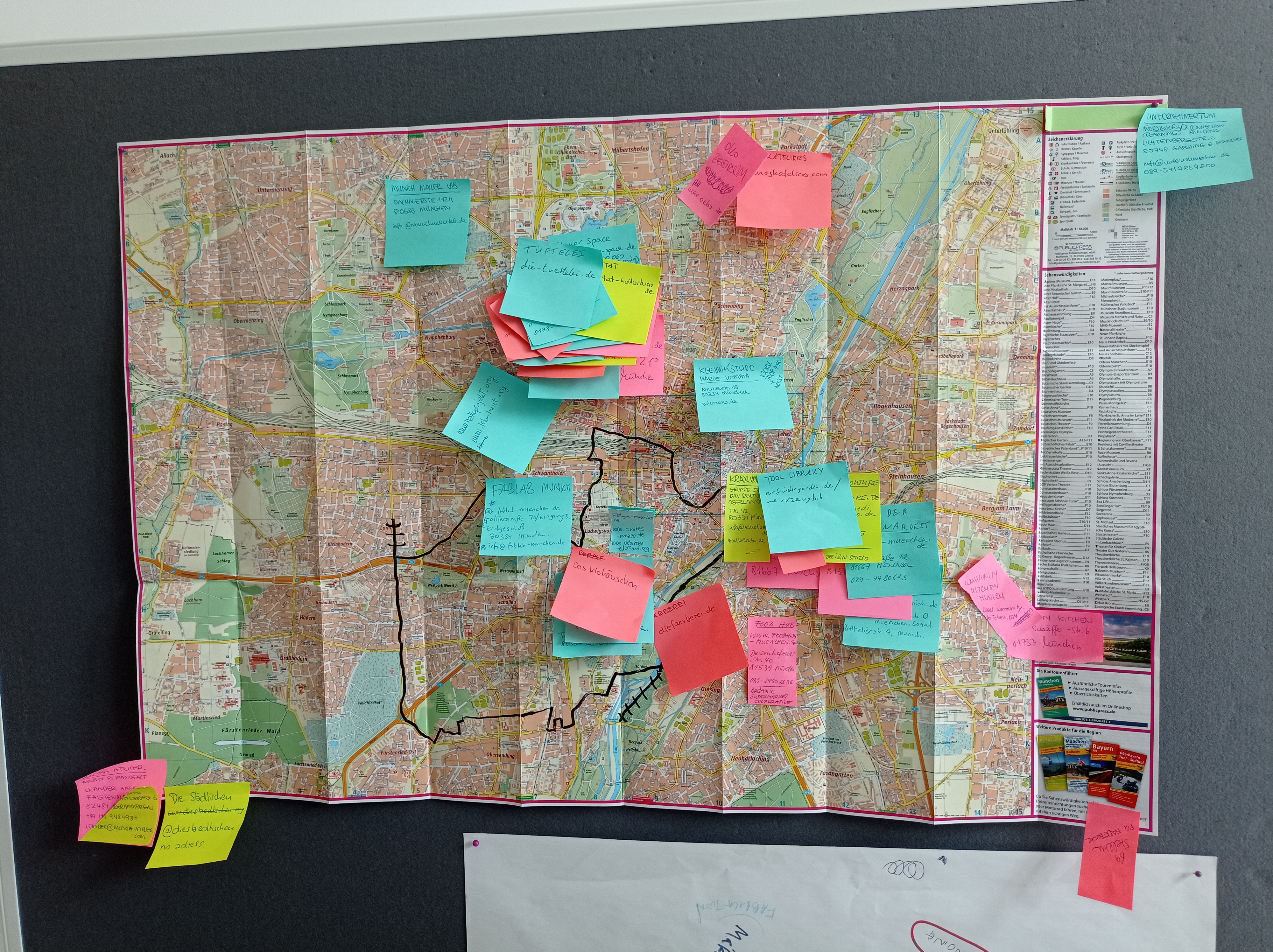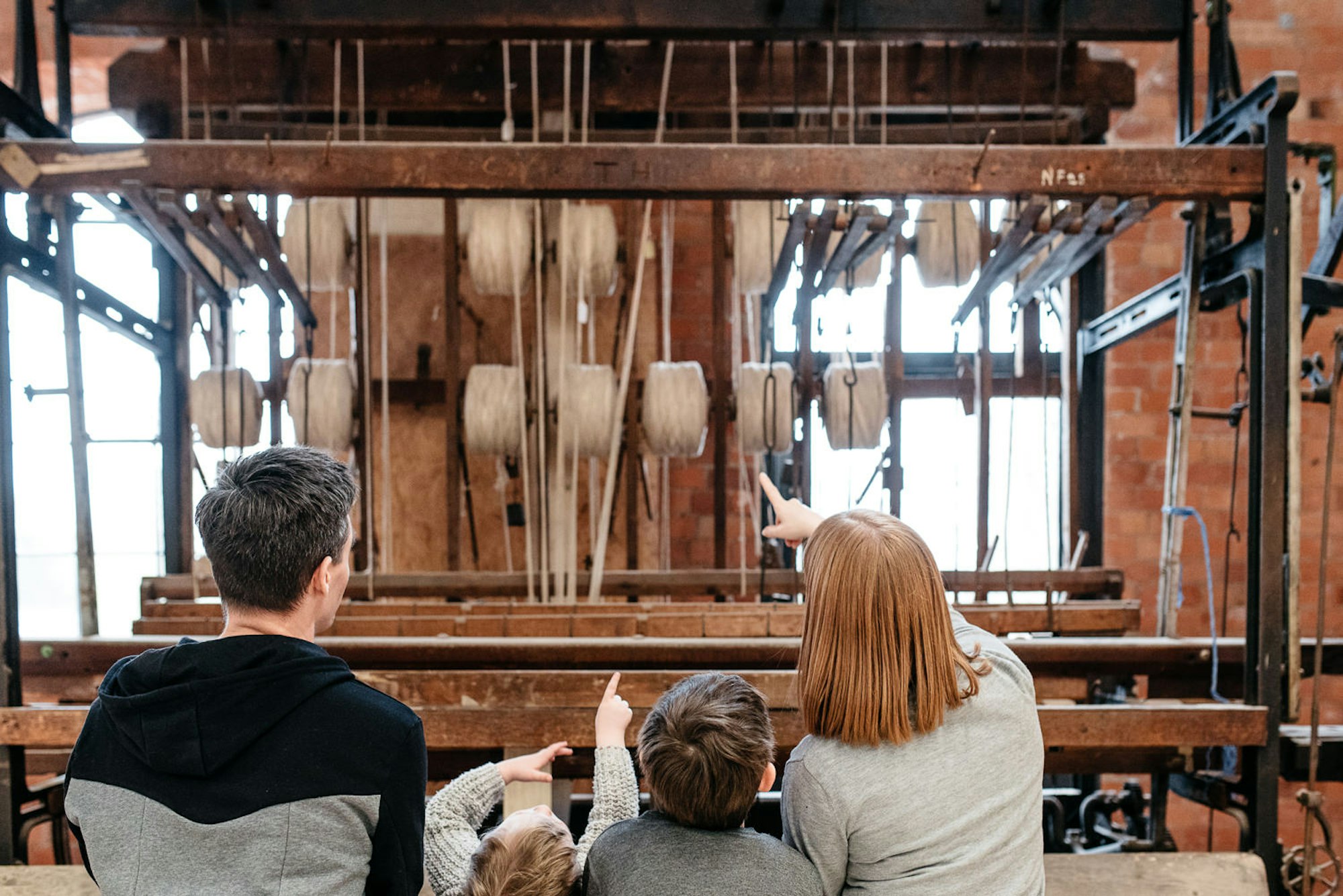Factory Friday: Skye Weavers

In our ongoing Factory Friday series, we are delving into the stories behind some of the Scottish Manufacturers that you can find on Make Works.
This week we've interviewed Andrea at Skye Weavers; a small weaving business producing commissions of bespoke tweed, throws and other woven items from their workshop on the Isle of Skye.
1. How did you get into weaving?
Through a series of fortunate coincidences. I had just completed a university degree in cultural studies in Germany and decided to spend the summer volunteering at Ardalanish, an Organic Farm on the Isle of Mull. There I met Roger, who was working on the farm, looking after a large flock of Hebridean sheep and a herd of Highland cattle. Besides being a farm, Ardalanish is also home to Isle of Mull Weavers, a traditional weaving mill well worth a visit if you’re ever on Mull!
Roger and I lived there for about seven years and became increasingly interested in the weaving, but were both working in other jobs. When the farm changed ownership, we decided to move to the Isle of Skye and set up our own weaving business with a bicycle pedal-powered loom we bought on the Isle of Lewis.
We had a lot of help from Bob Ryan, a Yorkshire weaver who had started the original Isle of Mull Weavers, and from everyone at Ardalanish.
2. Is there a typical client that comes to Skye Weavers?
Most of our business comes from direct sales through our own shop and website, but we also like working on a limited amount of special commissions. We’ve completed a number of commissions for hotels and holiday lets, specialist retailers and individuals. A client can be anyone who is looking for a bespoke design of tweed, throws, scarves or home furnishings. We always enjoy working with people who share our passion for small scale local manufacturing.
3. Can you tell us about a piece that you've particularly enjoyed making?
We really enjoyed weaving a special commission of throws for Dovecot Studios in Edinburgh.
This fantastic tapestry studio is based in a beautifully renovated Victorian pool building. With the design of the throws we tried to capture a bit of the atmosphere of the studio. We included structural elements of the roof as well as a blend of colours so typical for tapestry weaving.
4. What's it like working in the weaving industry at the moment – does it feel like there are any changes afoot?
We started the business in 2011 and that turned out to be good timing. There’s been a steadily increasing interest in natural fibres and local small scale production.
We’re working with spinning mills in Scotland and the north of England and they have all said that demand in woollen yarns has been growing. A lot of yarn and cloth production has moved overseas and it might take some time for producers to adjust to the increasing demand for British made products.

We felt from the beginning that there was quite a strong push towards fast business growth from various sides. For us it’s been an ongoing re-assessment of how big we want to be and what we want to achieve with our business. It feels like there are huge opportunities for growth in the weaving industry at the moment, but weaving is a relatively slow process with a lot of machinery involved. It’s a long term project and we decided to grow slowly and hopefully sustainably.
5. Why do you think that local manufacturing is important?
For me, the main arguments in support of local manufacturing are that it creates connections within communities, provides jobs, and enables ongoing conversation in perfecting a product. Local manufacturing is never going to be the cheapest option, but the proximity between producer and buyer can help form great working relationships. These relationships are essential in getting a product just right.

A photo from our visit to Skye Weavers back in 2013
Often there is a gap in understanding between manufacturer and designer/customer. Being near a producer means a customer can call in and have a look at the production process. Understanding the possibilities and limitations of particular processes can be of great value for creating a new product. Likewise, a manufacturer might get new ideas about altering production processes, if asked to make a particular item.
You can find out more about Skye Weavers on their Make Works profile here
If you'd like to find out more about weaving take a look at our Guide to Weaving and our piece: 10 Weavers to get you weaving
Categories
Factories
Related stories
Factory Friday: Turnberry Rugs
Aero Leather - Scottish manufacturer of leather jackets
Factory Friday: Jay Surfboards
New Make Works Film: Glencraft Mattresses
Manufacturer Case Study: Trakke






